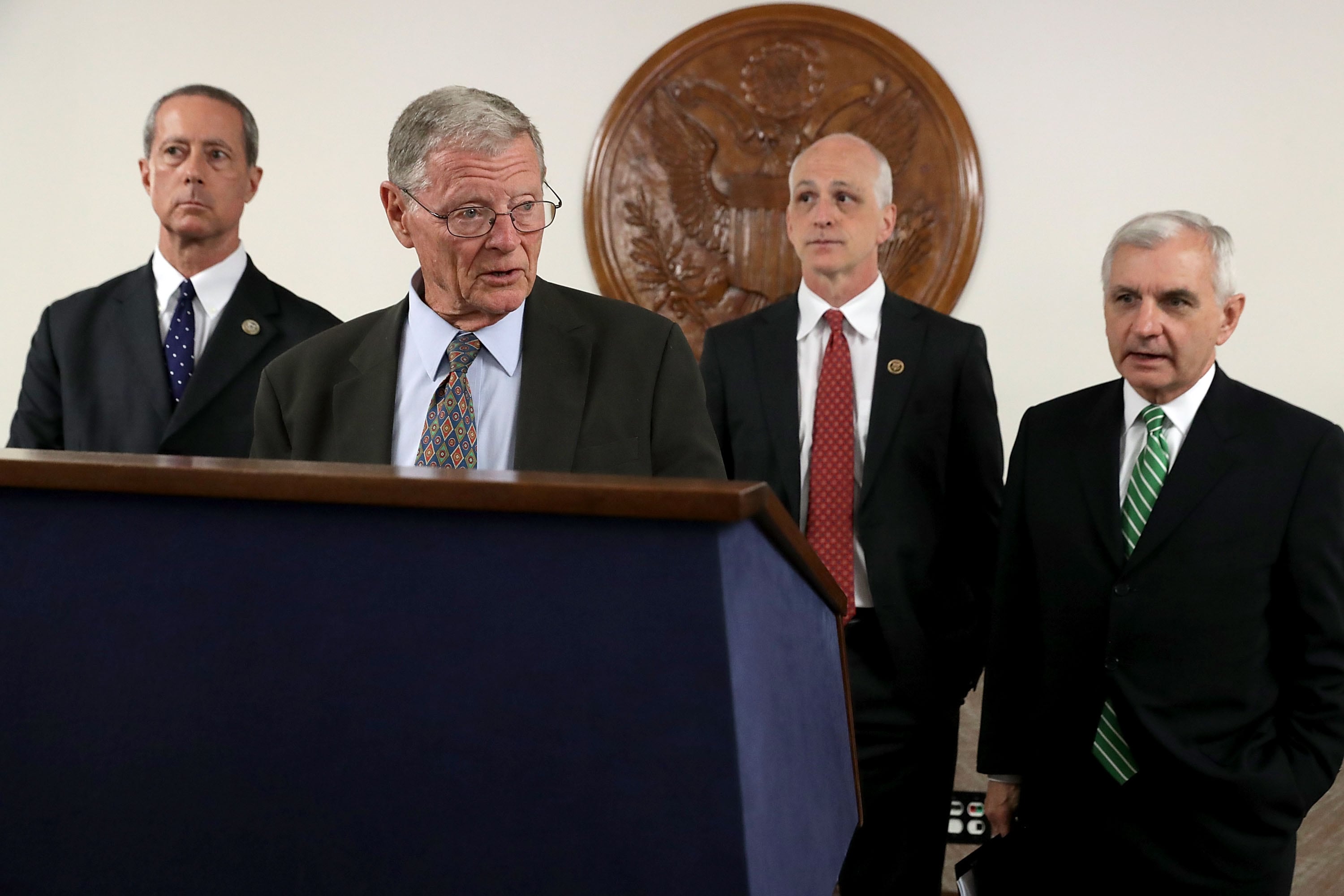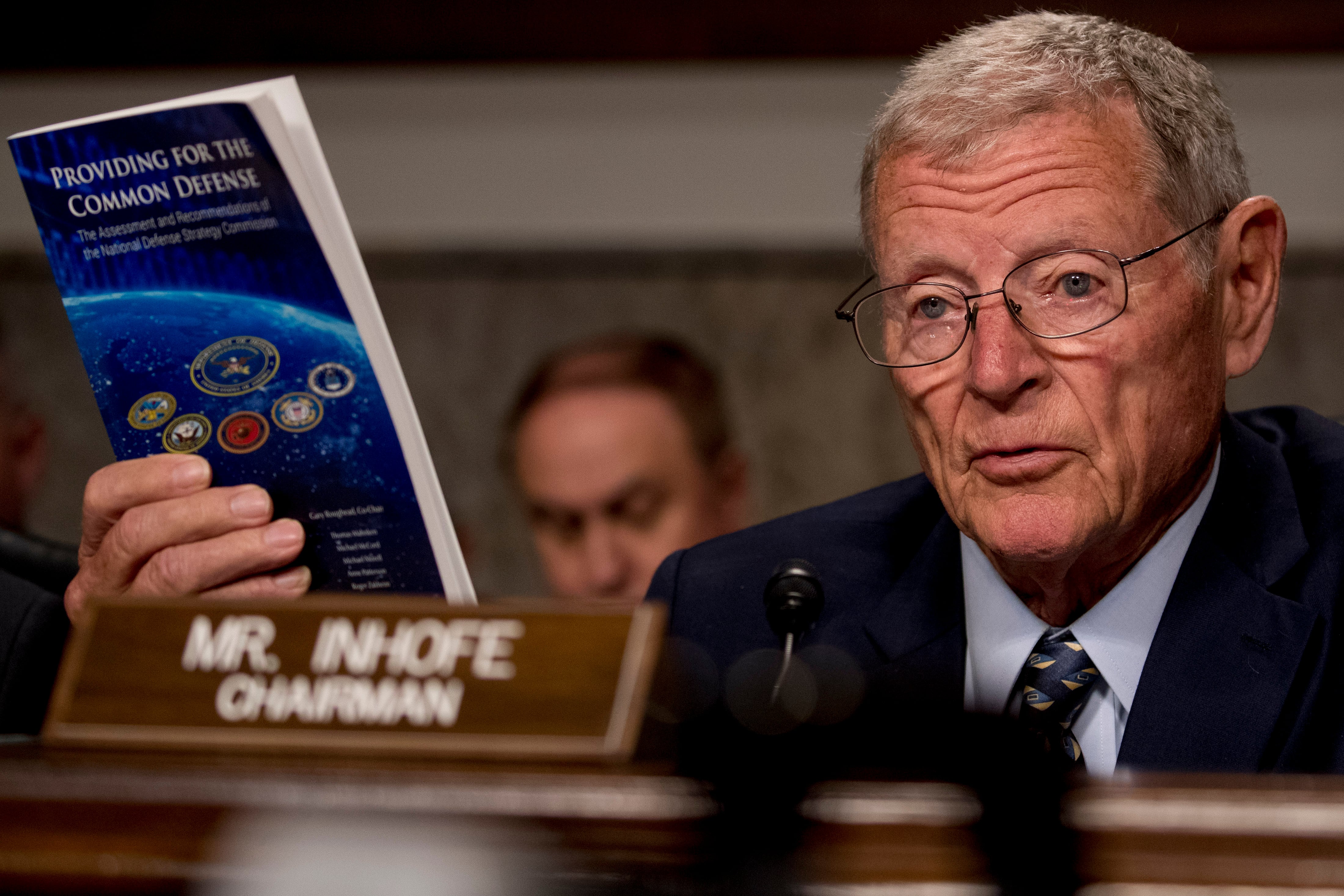WASHINGTON ― Senate Armed Serviced Committee Chairman Jim Inhofe announced Thursday he would offer a “skinny” version of the 2020 defense policy bill this week as a backup plan, in case talks to reconcile the main bills become deadlocked.
Though House and Senate lawmakers initially hoped to quickly negotiate competing versions of the bill, Inhofe’s idea is to ensure there’s no year-end scramble to authorize special payments and bonuses for service members, construction projects and military acquisition program oversight that would otherwise expire at the end of the calendar year.
“My fellow conferees and I have made good progress on the fiscal year 2020 defense authorization bill, but we haven’t yet reached a final agreement. We’re not giving up. We’ve passed this bill for 58 years running because it is our constitutional duty, and we’re going to do it again this year,” Inhofe, R-Okla., said in a statement. “However, we’re running out of time.”
The House has a recess planned for early November, after which both chambers are in session for only eight days before they recess for Thanksgiving. From there, both chambers would have another eight working days before the Christmas recess begins in mid-December.
RELATED

Inhofe’s comments came days after House Armed Services Committee Chairman Adam Smith, D-Wash., said that after weeks if negotiations, partisan splits remained on war powers, Guantanamo Bay, transgender service members, the Feres Doctrine, the so-called widow’s tax and the border wall ― a key priority of the White House.
“I still believe that we’re going to get a bill done, that we’re not going to go with this smaller bill,” Smith said. “Just yesterday I really started talking with the White House about the issues we’re still divided on, and I’m confident that we can resolve this. It’s not going to be as quick as we would like because government’s divided.”
Among a range of differences on nuclear issues, the House bill bars funding for the deployment of a low-yield variant of a submarine-launched warhead called the W76-2. It would cut the entire $19.6 million Defense Department request and $10 million Energy Department request for the program.
Republicans insist prohibiting these weapons puts the U.S. at a disadvantage against Russia. Smith ― speaking Thursday at an event sponsored by the Ploughshares Fund, an anti-nuclear weapons group ― repeated his view that this class of weapons is too dangerous to produce but admitted there are low odds the House language will prevail.
House Armed Services Committee ranking member Mac Thornberry, R-Texas, said Wednesday the skinny bill was Inhofe’s backup plan, and acknowledged the border wall as a key sticking point.
“The end of the year approaches, but we’re also getting tied up in other challenging issues that [we] have to resolve on the appropriations side,” Thornberry said.
RELATED

President Donald Trump’s efforts to divert millions of dollars in military construction funding to his promised wall along the U.S.-Mexico border has been a key barrier for the conference negotiations and for talks over individual appropriations bills.
The House bill has language barring such funding transfers in the future, and it does not include money to cover the projects that lost funding in the shift. The Senate version has money in the draft and does not include any language restricting funding transfers.
Joe Gould was the senior Pentagon reporter for Defense News, covering the intersection of national security policy, politics and the defense industry. He had previously served as Congress reporter.




